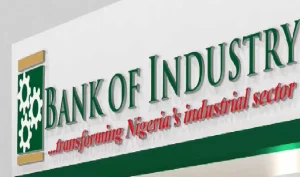
During the 2023 Annual General Meeting held in Lagos, the Chartered Institute of Bankers of Nigeria (CIBN) announced a notable increase in revenue. The institute reported a 16.9 percent rise in revenue from N1.76 billion in 2021 to N2.06 billion in 2022.
The CIBN also projected an increase in net assets by 7.3 percent and net operating surplus by 4.9 percent in 2022, reaching N6.66 billion and N837.94 million, respectively.
Mr. Ken Opara, President/Chairman of Council, CIBN, attributed the institute’s improved financial position to efficient resource utilization and a strong focus on revenue generation. He expressed satisfaction with the modest growth achieved despite the challenging macroeconomic environment in 2022.
Opara stated, “The institute will remain focused and committed to the implementation of our strategic plan. I appreciate the efforts of the institute’s management and emphasize the importance of maintaining this positive trajectory.”
During the meeting, the financial report for 2022 was presented by Mrs. Mojisola Bakare-Asieru, the National Treasurer of the CIBN. She highlighted a 16.92 percent increase in total income, which reached N2.06 billion compared to the previous year’s N1.76 billion. Bakare-Asieru attributed this growth to the improved performance of the various Directorates within the institute.
She further explained, “The Institute recorded a net operating surplus before impairment and amortization of N837.94 million, representing a 4.86 percent growth compared to the 2021 result of N799.17 million. This increase was achieved through efficient resource utilization, surpassing the 2022 budget of N711.02 million. The growth could have been even higher if not for the high rate of inflation experienced during the year.”
Bakare-Asieru noted that the institute’s recurrent expenditure rose by 26.89 percent to N1.22 billion, attributed to additional staff employment at strategic levels and the prevailing economic conditions.
She highlighted the institute’s ongoing efforts to digitize its operations, aiming to create new revenue streams and attract younger generations of bankers. The digitization process will integrate automation into the banking experience and service process, ensuring the institute remains relevant and appealing to the evolving needs of the industry.







